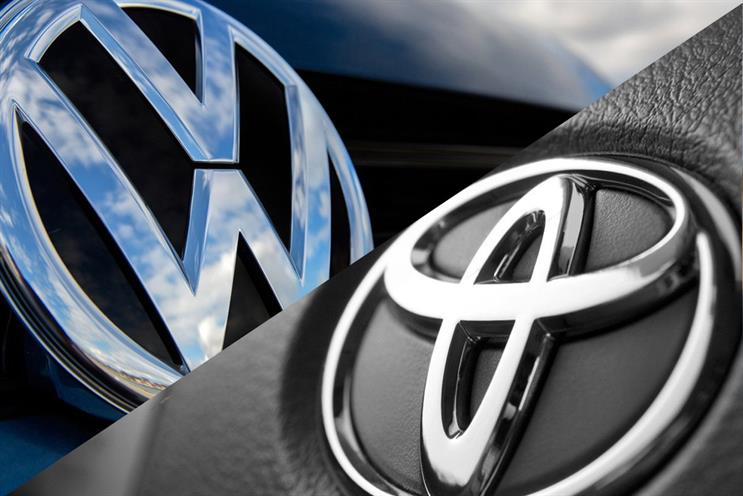
Yesterday, Toyota announced its results for 2016, revealing it had been dethroned by Volkswagen as the world’s largest carmaker.
Toyota, which has topped global sales for the past four years, announced that it sold 10.2 million cars globally, just short of Volkswagen's 10.3 million sales that it reported last week.
When asked for comment, a Toyota spokesman said that the brand was not focused on chasing volume for the sake of it. "We believe that our sales volume is just the result of our focus on making ever-better cars and providing better customer experiences."
But what factors led to Toyota’s decline? And how did Volkswagen overcome the black mark left against its brand by the ?
"The truth is, Volkswagen was affected by the scandal in 2015," said Neil King, senior data journalist at automotive data insights firm . "In the first half of 2015, the German group had overtaken Toyota, but in the aftermath of the emissions scandal, global deliveries amounted to 9.9 million units for the year as a whole, below the group sales tally of 10.15 million vehicles reported by the Japanese original equipment manufacturer.."
Furthermore, VW’s sales did continue to suffer in the US where the scandal broke with light vehicle sales dropping by 2.6% in 2016 versus 2015, adding King. What buoyed VW up was strong sales in China where it delivered an additional 434,000 vehicles last year, compared to an increase of 382,000 units in all markets combined.
China is a market where VW has successfully built up brand loyalty and where Toyota, , faces a challenging market. Last year, VW’s sales increased by 12.2% in the market versus Toyota which reported growth of around 8%.
VW is also aided worldwide by its strong luxury brand, Audi. Also under the VW portfolio is Porsche and Skoda.
Last year, Audi outperformed the core VW brand with 3.8% more deliveries globally, commented King. "The brand managed to increase light vehicle sales by 4% in the US… however, it’s the popularity of Audi’s SUV models in the US that kept he brand afloat in 2016. They now account for more than half the brand’s sales volume in the US."
VW’s swift restructure
Volkswagen’s swift recovery from ‘dieselgate’ can partly be credited to its quick move towards electronic vehicles, said King.
In December 2016, Volkwasgen , a standalone car company that will explore transportation in a world of fewer cars. It also started showcasing its concept electric cars under the I.D. brand. More recently, it announced plans for a under I.D, at CES 2017.
"What’s intriguing is that Toyota has been focusing on hybrid tech and, to a lesser extent, plug-in hybrids. Seemingly avoiding the electrical vehicle route in looking to fuel cells," commented King. "Over the last year however, it’s become clear they’re forging ahead with plans for their own electric vehicle."
Personally, King believes Toyota is looking to hedge its bets and prevent a major player like VW from controlling the electric vehicle market.
"It’s a bit like video versus Betamax at present, no one’s sure which tech will prevail in the long-term," he said.




.jpg)
.jpeg)
